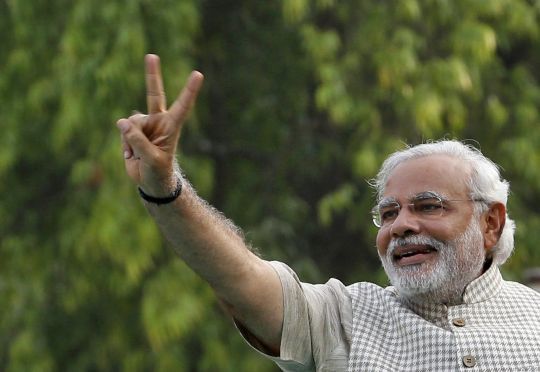What is the central idea, not policy, that will underpin India’s efforts during the 21st century, says T C A Srinivasa-Raghavan. The first year of Narendra Modi’s government is over.
The first year of Narendra Modi’s government is over.
To celebrate it, he and his ministers ought to have talked about what they would do in their second year.
Instead, in loud voices and somewhat desperate tones, they talked about what they had done in the previous 365 days.
If they had done really well, there was no reason to have been so defensive.
Anyway, since they let the opportunity pass, let me suggest what Mr Modi, apart from the usual things, also needs to do in the next 365 days.
In a single sentence, he needs to get some intellectual respectability for his party, his government and himself, not necessarily in that order.
Here’s the problem: Mr Modi is very disdainful of anything “intellectual”.
He dismisses that sort of people as “buddhijeevis”, people who are no good at getting things done, who talk a lot and, above all, are very critical of him.
He is right about some of that at least. Indian intellectuals – economists, sociologists, historians, political “scientists” – are mostly a bunch of Left leaning poverty entrepreneurs. All are feeding off the same empty Congress trough.
And now that the trough is empty, they are howling at the moon.
In recent years another group has sprung up — the breast-beating “institution-wallahs.”
Just as the Marxists and their Sufis in the Congress party tried to fit everything into a poverty paradigm, these “institution” types ascribe everything to, you guessed it, “democratic” institutions.
That’s fine except that for them whether an institution is in good health or not depends on whether they say so.
The fact that the best institutions adapt to the needs of the day is irrelevant to them. Institutions that don’t adapt get bypassed. You only need to read British constitutional history to see whether this is true. Intellectual hypocrisy is the leitmotif there.
Also, the laments of this group are essentially rooted in the Western view of society. Just as the Marxists still use an imported idea to judge their societies these people also use imported ideas. Earlier these ideas used to come from England. Now they come from the US. That’s the only difference.
These people occupy so much of the ideas space that it is assumed their view is the only valid one. Logically, however, their views are not superior or inferior to any other view rooted in a different world view.
Even this arrogance would be fine, or at least human, had its proponents been consistent. That, alas, is also not the case because there is no objective test available.
India, according to both these types of intellectuals, doesn’t have a brain, at least not one that is of much use.
From growth to distribution
This brings up perhaps the most important problem that India needs to solve: what is the central idea – not policy – that will underpin its efforts during the 21st century?
Between 1900 and 1950, this central idea was freedom. Since 1950, it has been empowerment — political, social and economic.
But when you empower everyone and every group in equal measure, you run into a peculiar problem: there is no way of choosing which will be the Big Idea. This is because there is no hierarchy of ideas.
What has happened as a result is that for every idea, there is an equal and opposing one, which is assumed to be as valid as all other ideas. In this milieu, even Rahul Gandhi has acquired some stature for his intellect with his suit-boot dig.
Nowhere has the effect of this non-prioritisation of ideas been more visible than in the turnabout in Narendra Modi’s central message. Until three months ago, this message – which brought him to power – was development via growth, with distribution being a by-product. Today it is development via distribution and it is growth that has become the by-product. We are back in the 1970s.
The comparison of Mr Modi with Indira Gandhi is therefore not just about their styles. It is about substance as well.
This is what happens when you get blindsided by a silly epithet. You lose focus, become defensive, and hand over the initiative to your adversary.
Half-life of ideas
Even more worrying is the fact that we are 15 years into the new century and are still using the tired old ideas of the 20th century as reference points. Very few countries are doing that.
Perhaps this is inevitable because ideas don’t exist independently of people and it takes time for the older generation to make way. Only a quarter of our MPs, it seems, are below 45.
Or, as Paul Samuelson said to me 25 years ago, “In your country human capital depreciates very slowly.” Is it any wonder then that bad ideas have such a long half-life here?
Photograph: Reuters









